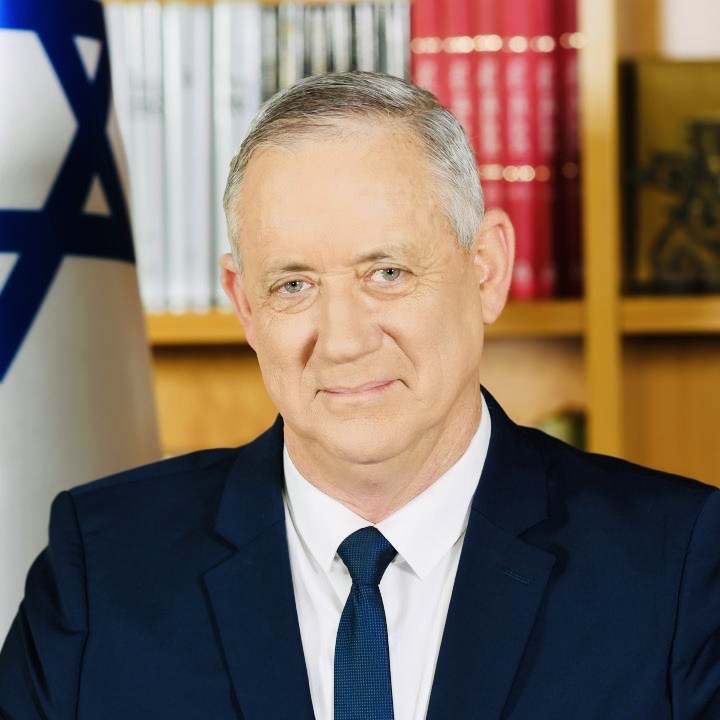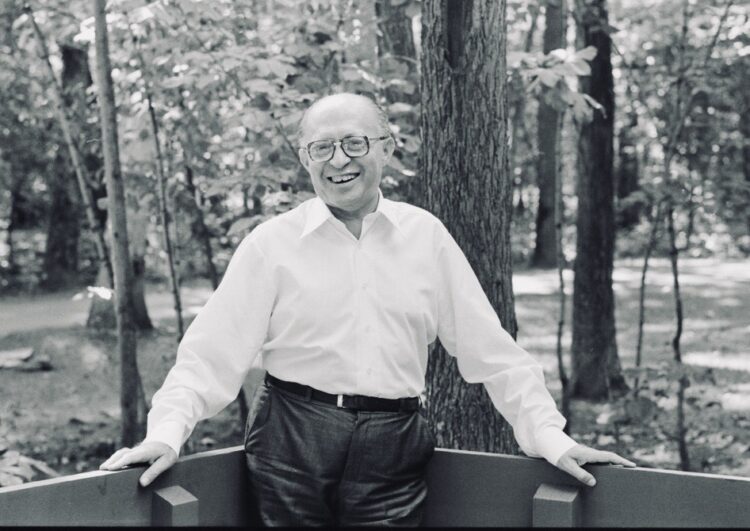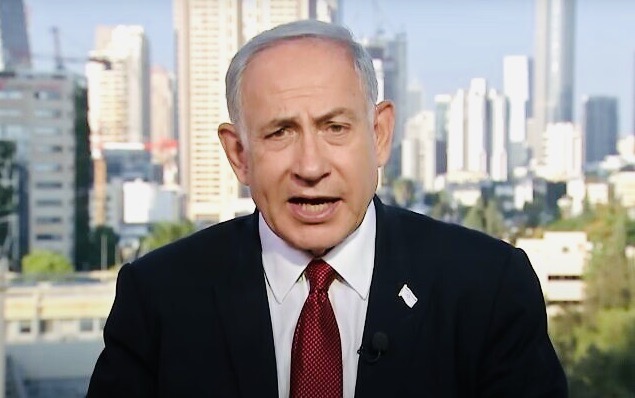In Israel’s most recent general election on November 1, its fifth in three years, right-wing parties triumphed and a left-wing party was all but decimated as Benjamin Netanyahu roared back to power after 18 months in opposition.
Netanyahu and his allies — the Religious Zionist Party, United Torah Judaism and Shas — won 64 out of 120 Knesset seats, enabling them to form what will be the most right-wing, religious-oriented government in Israeli history.
It was left to three liberal parties to the left of Netanyahu’s coalition to stave off the complete annihilation of the center-left bloc in Israeli politics.

Two centrist parties, Yair Lapid’s Yesh Atid and Benny Gantz’s National Unity Party, captured 24 seats and 12 seats respectively, while Merav Michaeli’s center-left social democratic Labor Party managed to win only four seats.

All in all, the center and the left amassed a total of 40 seats in a parliament that will be totally controlled by right-wing parties.
Arab parties, which serve a socially conservative but politically leftist constituency, picked up nine seats.
The most salient and shocking development was the collapse of the left-wing Meretz Party, led by Nitzan Horowitz prior to the last election. Meretz failed to win a single seat, having fallen below the electoral threshold by 3,800 votes.
Founded in 1992 after the merger of Mapam, Shinui and Ratz, Meretz was the third largest party in the Knesset in the wake of the 1992 election, after which Meretz joined Yitzhak Rabin’s government.
With Horowitz as its head, Meretz won six seats in the 2021 election. His successor, Zehava Galon, called for a merger with the Labor Party, but Michaeli refused to join a joint electoral slate. Her fateful mistake cost the Labor Party three seats and contributed to Meretz’s ignominious downfall.
Galon, nonetheless, accepted responsibility for the catastrophe that befell Meretz, the only truly Jewish leftist party in Israel. “This is a very difficult moment for me and the members of Meretz,” she said after learning it had been eliminated from the electoral map. “It is a disaster for Meretz, a disaster for the country, and yes, a disaster for me personally.”
The near evisceration of the Labor Party, in which its share of the vote was halved, also underscored the reality that Israel has been on a steady rightward course since the 1967 Six Day War.
The Labor Party presided over Israel’s fortunes from 1948 until 1977. It regained its dominance in the 1992 and 1999 elections, but has been in the doldrums ever since.
Inextricably identified with the pre-state Zionist movement and Israeli statehood, the Labor Party was dominated by David Ben-Gurion — Israel’s first prime minister — for years. Among its other leaders were Shimon Peres, Golda Meir and Levi Eshkol.

Felled by internal scandals and abandoned by most of its Sephardi religious supporters, the Labor Party went down to defeat at the hands of Menachem Begin’s Likud Party in 1977. In recent years, some Labor voters, including residents of collective settlements known as kibbutzim, have defected to Lapid’s centrist party.
The decline of Israeli leftist and left-center parties is starkly reflected in polling data.
Thirty years ago, when Rabin was at its helm, the Labor Party and Meretz won a combined 44 percent of the vote. By 1996, when Netanyahu won his first election, this figure had dropped to 34 percent. In the elections of 1999, 2003, 2006 and 2009, Labor and Meretz won a lot less — 28 percent, 20 percent, 19 percent and 13 percent.
The Labor Party’ share of the vote increased to 16 percent and 22 percent in 2013 and 2015 under Shelly Yachimovich and Isaac Herzog, but fell precipitously to 3.6 percent last month.
This year’s election catapulted the far right-wing Religious Zionism Party into third place after the Likud and Yesh Atid. When the new Knesset was sworn in recently, nearly one-third of its members were Orthodox Jews from various denominations, as one commentator observed. “There are more people in yarmulkes, more ultra-Orthodox and more settlers occupying the coalition benches than ever in the furthest right and most religious Knesset to serve in Israel,” Mazal Mualem wrote.

The lurch to the right has been an ongoing and inexorable process.
Israel’s stunning victory in the Six Day War emboldened messianic-inclined right-wing Israelis and drew the Labor Party head first into the settlement building project in the West Bank, Golan Heights, Gaza Strip and Sinai Peninsula.
During Begin’s tenure as prime minister, settlement construction in the occupied territories skyrocketed. Begin, however, relinquished the Sinai in exchange for a peace treaty with Egypt.
The 1993 Oslo peace process, while a step in the right direction in Israel’s planned reconciliation with the Palestinians, produced an unprecedented wave of Palestinian terrorism and disillusioned a great many Israelis.
Rabin’s assassination in 1995 dealt Oslo another severe body blow. His killer, Yigal Amir, was a fierce opponent of Israeli territorial concessions. In the meantime, Netanyahu’s accession as prime prime in the following year was a telling harbinger of Israel’s pessimistic mood regarding the prospects of peace with the Palestinians.

Many Israelis were also disappointed by the unsuccessful outcome of a Camp David summit meeting in the summer of 2000 between Ehud Barak, the premier of Israel, and Yasser Arafat, the president of the Palestinian Authority. Barak offered Arafat sweeping territorial concessions in scattered enclaves, but he rejected them as insufficient.
Israelis lost still more faith in the peace process, such as it was, during the second Palestinian uprising, which lasted from 2000 to 2005 and caused the deaths of more than one thousand Israelis and some two thousand Palestinians.
By this juncture, increasing numbers of Israelis believed that the Palestinians were neither credible nor reliable partners. From the Palestinians’ perspective, the Israeli occupation and the expansion of Israeli settlements in the West Bank proved that Israel merely paid lip service to peace and was not prepared to pay the price for peaceful coexistence with the Palestinians.
Israelis were further disappointed that Israel’s unilateral withdrawal from Gaza in 2005 was not reciprocated by the Palestinians. Hamas, Gaza’s governing authority, did not and has not come to terms with Israel’s existence. Instead of focusing on turning Gaza into a thriving entity like Singapore or Hong Kong, Hamas focused on its conflict with Israel and bombarded it with rockets and mortars, thereby exacerbating the Palestinians’ bitter dispute with Israel.
Since then, cross-border Gaza wars have broken out in 2008-09, 2012, 2014 and 2021, all of which have further soured the attitude of many Israelis toward the prospect of peace with the Palestinians.
During the last war, inter-communal violence erupted as Israeli Arabs and Jews clashed in the mixed city of Lod and as Arab residents of Wadi Ara sought to block Israeli army convoys. These events reinforced the belief of right-wing Israelis that Arabs cannot be trusted and that Israel must retain security control of the West Bank.

During his second term of office starting in 2009, Netanyahu announced his acceptance of a two-state solution. But after the collapse of U.S.-sponsored peace talks from 2013 to 2014, he gradually walked back his endorsement and offered the Palestinians nothing more than autonomy within the broader framework of Israel’s occupation of the West Bank.
Having formed his sixth government with the aid of extremists like Bezalel Smotrich and Itamar Ben-Gvir, who abhor the very idea of Palestinian statehood and regard the West Bank as intrinsically Jewish territory that should be annexed, Netanyahu will most probably tighten Israel’s grip on it and expand the chain of existing Jewish settlements.
Lapid and Gantz are likely to criticize the policies of Netanyahu’s coalition, as they have in the past. But apart from them and pro-Palestinian Arab parliamentarians, not a peep will be heard from left-wing politicians, whose party, Meretz, has been demolished and shut out of the Knesset.
